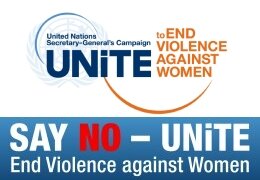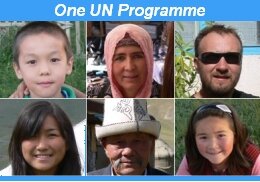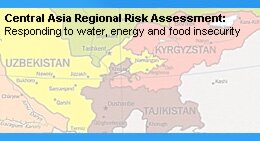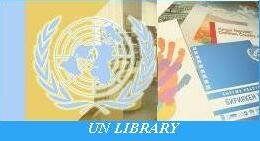| UNICEF: New Ways to Resolve the Challenges of the 21st Century |
|
|
| Categories: (Other Documents | Document Database | UN Agencies | UNICEF) |
|
Traditional approaches are not always successful at tackling the latest challenges for humanity. Therefore new approaches need to be found. This is why UNICEF is supporting the Ministry of Health of the Kyrgyz Republic, as well as society more broadly, in the struggle with HIV and AIDS. In April 2007, more than 100 young children were infected with HIV in medical institutions in Kyrgyzstan’s Osh province, and society shuddered. Neither society itself nor the medical system was ready for HIV to break out among the general population. Until the outbreak it was believed that children were not at risk, and that the threat only faced certain groups in the population with lifestyles that made them particularly vulnerable. It is still difficult to say how exactly the children were infected: whether they received the virus through dirty medical instruments or from infected mothers, and it is clear that it is already impossible to establish the cause. In this regard, something else was more important – the need to take effective measures to prevent further transmission of the virus, including from infected mothers to children, and to quickly incorporate care for people living with HIV into the general healthcare system. Despite the increase in HIV infection rates in the country, until recently only specialists from provincial AIDS Centres were providing the care and medical support necessary. “The family doctors who we approached in Nookat didn’t know how to treat sick children,” said people living with HIV. “The doctors were afraid of us and sent us to Doctor Aliev in Osh.” However, because in general those infected with HIV were from poor families, they found it difficult to regularly travel 100 kilometres for consultation. In addition, family members needed psychological and moral support, and they faced terrible stigma in their communities. Since June 2008, UNICEF’s “Social support for families suffering from HIV” project has been running. The main aims of the programme are to create an effective system of social support for families living with HIV; to create a network of partner organisations; to provide medical and social services to these families; and to help unite the families in support groups. The last of these tasks is the most difficult, as the mentality of people living in the south of Kyrgyzstan does not allow for interference in family life. Families live by unwritten, centuries-old rules and any deviation from these rules is harshly punished – often by expulsion and complete isolation of the family. People are not only afraid to act to defend their rights – they are afraid even to talk about them. Therefore, UNICEF staff members and their project partners are moving step by step to find non-traditional ways to persuade people to do so, to stimulate awareness and actions. Besides discussions and forums with officials, heads of healthcare institutions, non-governmental and international organisations on the topic of support for people living with HIV, a key meeting took place at Lake Issyk Kul of families from Kyrgyzstan and Kazakhstan. Working on the “equal-to-equal” principle, the meeting installed hope into the despondent parents from Osh province, and gave UNICEF the chance to keep working with the suffering communities, by helping them to unite and act for the future of their children. In parallel the Baylor Institute (USA), in partnership with UNICEF, led a number of cycles of practical training in Osh for doctors from Family Medical Centres in Nookat and Karasuu districts, and also district and provincial children’s hospitals, on supervision and treatment of children living with HIV. Two experienced practitioners from Ukraine came to Kyrgyzstan a number of times, to train their colleagues from Kyrgyzstan on how to supervise children infected with HIV; how to provide them with psychosocial support, how to react to opportunistic infections and how to create individual antiretroviral therapy programmes for their young patients. In 2009 training was held in Bishkek for Compulsory Medical Insurance Fund staff members, which also had the aim of incorporating supervision and treatment services for people living with HIV into general medical services in Kyrgyzstan. Recently a group of doctors from Kyrgyzstan, with the support of UNICEF, visited Ukraine to see how the staff of medical institutions in Kiev, Zhiltomir and Cherkassov work with people infected with HIV. The participants found out about how clinics, laboratories and mobile hospitals work, and observed how the system of psychosocial assistance for people living with HIV was created and operates in the country. They discovered much that was useful in the training, and are already realising that experience in practice, not least by introducing HIV therapy courses for Medical Academy graduates in Kyrgyzstan. For the first time, cooperation between UNICEF and the Ministry of Health on monitoring the activities of medical institutions in the country includes people living with HIV. That is, people who have themselves struggled with the current system of medical and social services in Kyrgyzstan and therefore know that the system needs to change, in order to make it friendly to people living with HIV. Nasima, the head of the Alliance of Positive People and an HIV positive mum of a healthy child, recently returned from a journey around the south, where she worked with a group of Ministry of Health specialists from Bishkek who were inspecting medical institutions, including maternity houses. She talked with doctors and patients, and brought a range of recommendations back to Bishkek to improve supervision of women infected with HIV. In general, UNICEF’s efforts have been directed not only at increasing medical personnel’s awareness about people living with HIV, and the attitude of specialists towards the HIV-positive, but also at making cardinal reforms to the whole system for providing psychosocial and medical assistance to people living with the virus and their families. This path is long and difficult, but the first steps have already been made. Olga Grebennikova |





















